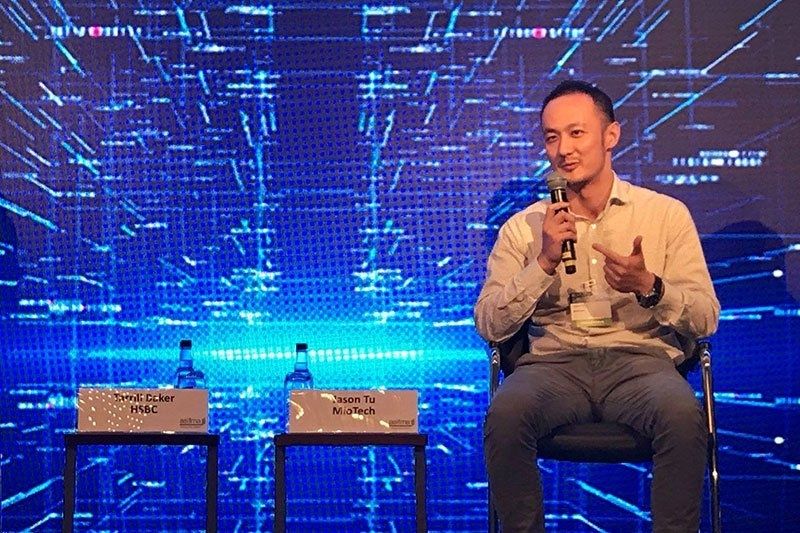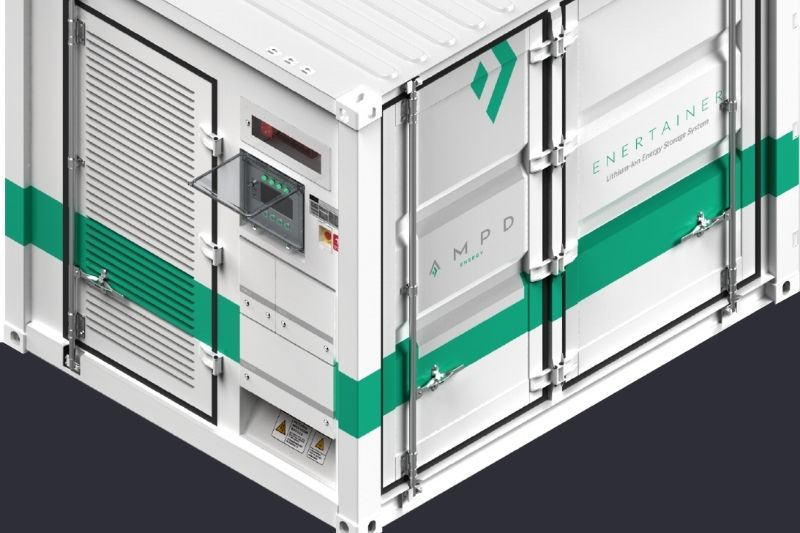Scientists turned startup founders are turning the environmental crisis into opportunities for innovation. Here are eight of the biggest sustainability trends that will transform our future, and the Hong Kong sustainability startups leading the change.
Businesses, pushed on by industry competition and the global priority on economic growth, have been the major culprit in Mother Nature’s destruction. Corporations’ environmental policies have not been much more than lip-service – charity trusts, donation pledges, or “we plant a tree for every purchase” offers that remain ineffectual gimmicks unconnected to the core of their business models.
However, as consumers are becoming aware, they are making active choices to buy from more responsible companies. Businesses are being held accountable for their carbon footprints, so they need to start using technology to fundamentally transform traditional industry practices and positively brand themselves to consumers. By changing the core of their practices, businesses are integrating environmental values and simultaneously cutting production costs. Here are eight Hong Kong sustainability startups evolving traditional businesses as we know them.
1. Intensel
Climate Risk Management
Intensel is a data-modelling startup that sells a software service to businesses for the prevention and management of climate risks. Through proprietary AI-driven data analytics algorithms, Intensel can model the risk posed by a range of climatic events, from typhoons to droughts. Intensel’s accuracy and precise geolocation can pinpoint its predictions to, for example, a building‘s risk of damage and business interruption rather than that of a general region. Their clients are in asset-heavy sectors like energy, utility, and materials. Climate risk is only going to impact businesses more and more substantially. Awareness of this risk is low, but growing. Companies will need to factor in climate risk management and be prepared for its effects on operations and financial performance.

2. Miotech
ESG (Environmental, Social, & Governance) Reporting
ESG reporting rates companies on their performance in environmental, social and governance factors. Miotech is raising awareness of ESG reporting by helping investors select companies based on their ESG performance. They can help to execute sustainability-related fund mandates that, for example, don’t allow investment in companies which generate more than half of their electricity with thermal coal. 92% of Gen Z consumers care about a brand’s ESG, demonstrating a key consumer insight that companies should take note of.
Investors are increasingly tying ESG ratings to a company’s financial outlook, driving their demand for ESG standard ratings. Simultaneously, governments are ramping up reporting regulations. Miotech provides ESG analysis on over 800,000 Chinese private and public companies – think Moody’s, but for sustainability (Moody’s even has a minority stake in Miotech). While many companies self-report on ESG factors in their annual reports, these are often unstandardised and subjective. Miotech uses Artificial Intelligence (AI), Natural Language Processing, and Knowledge Graph technology to track alternative data sources such as news, social media, quality-control agencies, water usage, supply chain, government websites, and third-party detection agencies. It then structures the data and turns it into real-time insights for clients, which include institutional investors, banks, funds, risk managers and regulators.

3. Carnot Innovations
Smart Buildings and Factories
Carnot Innovations is one of the startups making smart buildings a reality in Hong Kong. Maintenance costs, mechanical malfunctions and natural deterioration are all unavoidable building cost inefficiencies. So far, the only prevention method for these costs is “preventative maintenance”: scheduling regular maintenance checks and replacements of machine components, based on manufacturer guidelines. But the imprecision of this method is itself costly; businesses either pay for excessive maintenance, or fail to detect equipment malfunctions until scheduled maintenance checks. This delay causes further damage, which leads to unexpected downtime.
The Internet of Things (IoT) and automation technology has made “predictive maintenance” possible. Sensors track a machine’s condition in real-time, measuring for warning signs like vibration or temperature. This data is then analysed and interpreted through algorithms pre-built with data analytics. The resulting diagnosis deduces when a machine might fail, suggests how to maintain it, and predicts its remaining usage period. This way, maintenance work can be performed before breakdowns happen, when it is actually needed. Costs are optimised and energy is saved. The global predictive maintenance market is expected to grow to USD $23B by 2025, predominantly in sectors with a lot of capital invested in equipment, like manufacturing.

4. Ampd
Electric Energy
Given the current pace of rapid global urbanisation, we need to build the equivalent of a new Paris every week for the next 40 years. With the unsustainable practices of current traditional construction, this calls for innovation and integration of sustainable technology. Ampd is bringing electric energy to the construction industry through their Ampd Entertainer, a self-managing battery system developed to replace the diesel generators currently powering urban construction.
Electric energy is better for the environment because it can be generated with renewable energy sources instead of fossil fuels. The Entertainer dramatically reduces carbon emissions, completely eliminates diesel-related pollution, is 30 times quieter than diesel generators, and is fully internet-connected. This isn’t only a win for sustainability, but also for productivity: work hours can be extended to noise-sensitive hours and no user operation is necessary as the system is self-managing. Furthermore, the internet connectivity not only allows projects to be managed remotely, but also collects data about site operations.

5. Volt14
Lithium Batteries
Like Ampd, Volt14 innovates in energy storage. One form of energy storage, lithium batteries, is particularly trending because of its application in electric vehicles, smartphones, and computers. As production costs fall and technology matures, broader uses for them are being found. Companies are racing to improve lithium battery efficiency, cost competitiveness, and performance.
By developing novel materials to use at the anode part of lithium batteries, Volt14 enables batteries to double their energy storage capacity. Smartphone batteries can last up to 85% longer and electric cars can be 10-15% cheaper, bringing them closer to price parity with gasoline-powered cars.

6. Huue
Synthetic Biology
Environmental awareness has pushed a cleaner branch of science to the forefront: synthetic biology (or bioengineering) is replacing the chemical engineering that was responsible for plastic and petrochemical production. Synthetic biology involves learning from natural processes and then altering organisms so they produce a desired effect through those processes.
Huue applies synthetic biology to create sustainable textile dye. Indigo blue is the dye that gives denim its iconic colour, and producing it is the dirtiest part of denim production. Making 1 kg of the dye requires 100 kg of petroleum, as well as toxic, water-polluting chemicals like benzene, formaldehyde, cyanide and sodamide. We currently produce 65,000 tonnes of this indigo dye annually. Huue learns from the tinctorium plant, which naturally produces indigo colour compounds. With proprietary bioengineering technology, they create microbes that mirror nature’s process and consume sugar to enzymatically produce dye. As a result, their biosynthetic indigo has 5 times less toxicity potential than conventional indigo.

7. Avant Meats
Alternative Protein Sources
Climate change and other factors are creating a global food shortage problem. Fortunately, these have boosted investment in the development of solutions, including alternative proteins. Livestock farming, where our protein has traditionally come from, is also highly damaging to the environment. Among startups developing cell-based meat, Avant Meats stands out for tailoring its products to “the preference and consumption behaviours of consumers in China and Asia.” Particularly focused on seafood, they recently unveiled their cultivated fish fillet at the Asia-Pacific Agri-Food Innovation Summit. They are also currently developing cell-based fish maw and sea cucumber, two high-value ingredients used in traditional Chinese cuisine.
The seafood industry comes with an extremely high environmental cost, plagued with issues like overfishing, plastic pollution, carbon emissions, bycatch, and species extinction (including fish maw and sea cucumber). Conveniently, fish maw is made up of a singular cell type, which makes lab cultivation easier than with other kinds of meat. Avant Meats hopes to produce clean fish maw commercially within the next three or four years.

8. Ecoinno
Biodegradable Plastics
Ecoinno processes cellulose, the most abundant organic compound on earth, and turns it into a sustainable plastic called Green Composite Material™. This material is 100% biodegradable within 75 days, and Ecoinno is using it to manufacture single-use plastic packaging. Boosted by a US$6 million cash injection from the Alibaba Entrepreneurs Fund, the startup has gotten a Hong Kong airline on board as one of its first customers.
The biodegradable plastics space was trending heavily a few years ago, but more recently its momentum has been stalled. Normal plastic, which is extremely cheap and easily mass-produced, is a direct substitute for the green alternative. In order for biodegradable plastics to compete, the industry will require either extremely strong funding to support and drive down the costs of a particular type of green plastic, or groundbreaking innovation that adds value to the new green material through superior performance or extra features.

Newsroom | Alibaba Entrepreneurs Fund
Related Articles
Chris Brown: Rethinking Corporate Sustainability in Hong Kong
K11 Musea: Is This USD 2.6 Billion Sustainability Mall Worth the Hype?
Christina Dean: The Woman Leading a Global Movement in Fashion Sustainability





